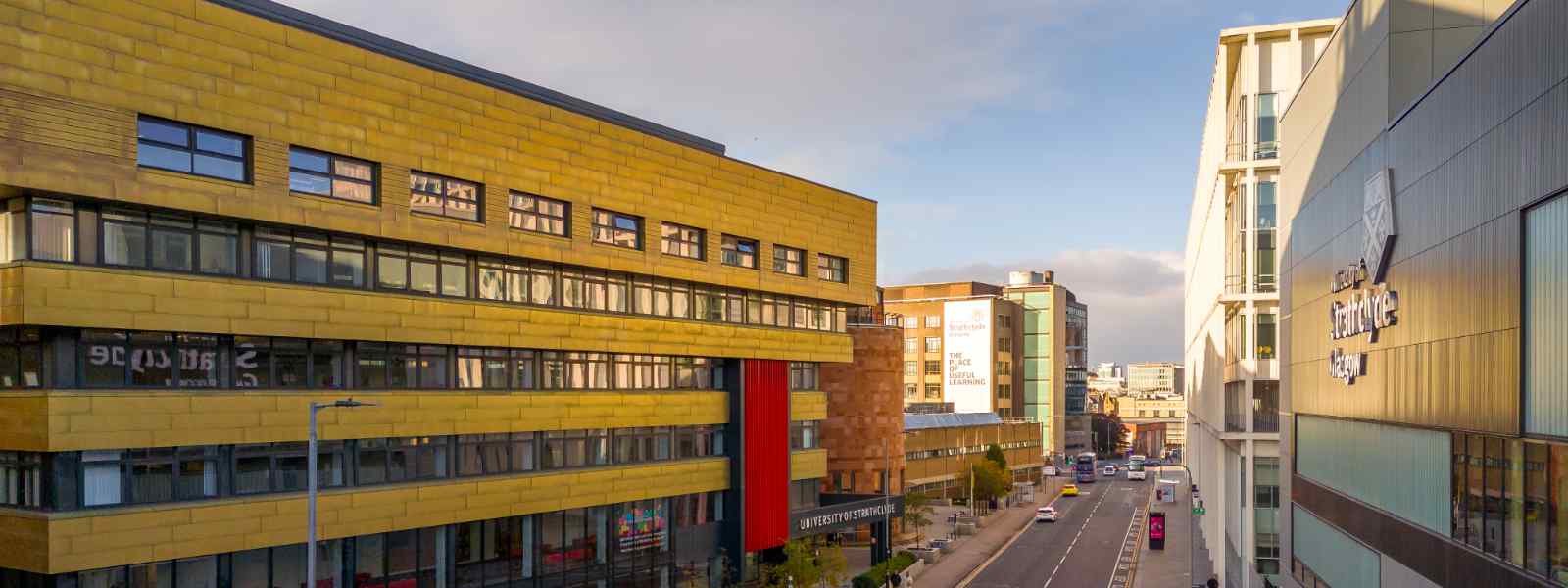
The University of Strathclyde will lead two new Centres for Doctoral Training (CDT), and partner in seven others, as part of the UK’s biggest-ever investment in engineering and physical sciences doctoral skills development.
The Centres are among 65 sharing more than £1 billion of funding from the Engineering and Physical Sciences Research Council (EPSRC) to support critical skills in artificial intelligence, quantum technologies, semiconductors, telecoms and engineering biology.
The two CDTs being led by Strathclyde are the EPSRC CDT in Cyber-physical systems for Medicines Development and Manufacturing (CEDAR), led by Professor Alastair Florence, Director of CMAC, the University’s world leading hub for medicines manufacturing research; and the EPSRC CDT in Applied Quantum Technologies, led by Professor Stefan Kuhr, in the Department of Physics.
Critical skills
The CEDAR programme aims to revolutionise the pharmaceutical and technology sectors by addressing critical skills needs within the industry. Developed in collaboration with industry partners, CEDAR will train 90 future leaders with the multidisciplinary skills essential for advancing next-generation, sustainable medicines manufacturing.
By developing novel cyber-physical systems that harness the power of digital technologies including artificial intelligence, robotics and augmented reality, CEDAR will deliver the talent pipeline of future leaders who can help to bring new medicines to patients, faster, more sustainably and cost effectively.
Professor Florence, said: "CEDAR represents a groundbreaking approach to training future leaders in advanced medicines development and manufacturing. This is essential if we are to meet the challenges of rising costs, climate crisis, ageing population and pandemic preparedness whilst bringing increasingly complex new medicines to patients.”
I look forward to working with the fantastic academic and industry team who have co-created this programme to provide our students with the best opportunities to succeed throughout their careers.
"This collaboration exemplifies our dedication to driving innovation, sustainability, and resilience in the sector and providing benefits to patients."
Quantum scientists
The Applied Quantum Technologies CDT addresses the national need to train the next generation of quantum scientists and engineers for this emerging industry. The training program is a partnership between the Universities of Strathclyde, Glasgow and Heriot-Watt, and more than 30 UK industry partners. It will offer advanced training for 80 PhD students in broad aspects of Quantum Technology, from technical underpinnings to applications in three key domains: Quantum Measurement and Sensing, Quantum Computing and Simulation, and Quantum Communications.
Quantum Technology, based on phenomena that govern physics on an atomic scale, enables transformative breakthroughs across all these areas. Quantum networks will provide communication security on a global scale, quantum sensors will revolutionise precision measurements in fields such as geology and biomedical imaging, and quantum computers will efficiently solve problems that are intractable even on the best future supercomputers.
Professor Stefan Kuhr said: “This CDT stands as a flagship initiative in Scotland and the UK, playing a crucial role in training the next generation of quantum scientists and engineers.”
Next generation
Strathclyde is also a partner in seven other CDTs:
- EPSRC CDT in Use-Inspired Photonic Sensing and Metrology, led by Heriot-Watt University
- EPSRC CDT in Engineering Hydrogen Net Zero, led by Loughborough University
- EPSRC Centre for Doctoral Training in Quantum Informatics, led by the University of Edinburgh
- EPSRC CDT in SATURN – Skills and Training Underpinning a Renaissance in Nuclear, led by the University of Manchester
- EPSRC Industrial CDT in Offshore Renewable Energy (IDCORE), led by the University of Edinburgh
- EPSRC CDT Developing National Capability for Materials 4.0 with the Henry Royce Institute, led by the University of Manchester
- EPSRC CDT in Net Zero Aviation, led by Cranfield University
Professor Charlotte Deane, Executive Chair of the Engineering and Physical Sciences Research Council, part of UK Research and Innovation, said: “The Centres for Doctoral Training announced today will help to prepare the next generation of researchers, specialists and industry experts across a wide range of sectors and industries.
Spanning locations across the UK and a wide range of disciplines, the new centres are a vivid illustration of the UK’s depth of expertise and potential, which will help us to tackle large-scale, complex challenges and benefit society and the economy.
Sustained support
More than 4,000 doctoral students will be trained over the next nine years, building on EPSRC’s long-standing record of sustained support for doctoral training.
Total investment in the CDTs includes £479 million by EPSRC, more than £7 million from Biotechnology and Biological Sciences Research Council, also part of UKRI; £16 million by the MOD; £169 million by UK universities; and a further £420 million in financial and in-kind support from business partners. The investment includes an additional £135 million for CDTs which will start in 2025.
More than 1,400 companies, higher education institutions, charities and civic organisations are taking part in the centres for doctoral training.